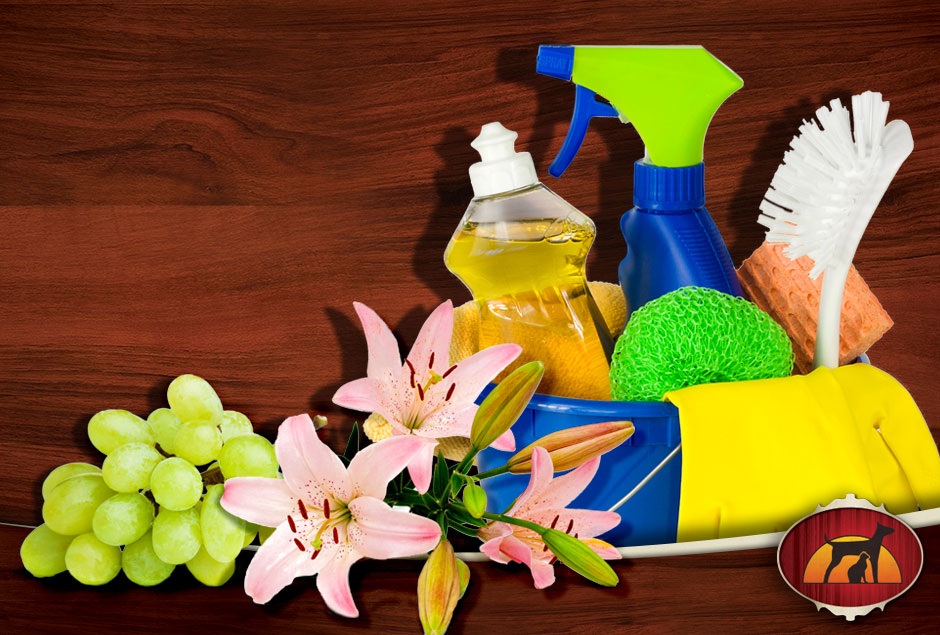PREVENT POISONING IN PETS
Pet parents will do just about anything to ensure their pets are happy, healthy and comfortable. We trim their claws, give them baths, groom them and always make sure they receive the preventative care they need. However, you may not realize that you likely have dozens of toxic substances in your home that put your pet’s health at risk. Since this week is Pet Poison Prevention Week, take a moment to learn more about the dangers of pet poisoning and how you can prevent it.
WHAT ARE THE PET POISONS IN YOUR HOME?
Believe it or not, nearly every room in your home is likely to have some sort of toxic substance that is dangerous for your pet in it. Many of these items are obvious and include household cleaning products and bug and pest killers (i.e., insecticides and rodenticides). However, it’s the other, less-obvious household toxins that could be harder to recognize. For example, foods that are safe for humans to eat—like grapes and raisins—can be very dangerous for our pets to ingest. As a rule, never share human food with your pets, no matter how persistently they beg for it.
Many plants—such as aloe and lilies—add beauty to our homes, but they also bring the risk of poisoning our canine and feline friends. If you have houseplants, take a moment to see if your pets are safe to be around them; the ASPCA has a handy list of toxic and non-toxic houseplants here. Similarly, human medications pose a poisoning risk to pets and cause many dogs and cats to go to the ER every year. With these potential dangers in mind, it’s essential to keep your toxic materials out of reach of pets and children, using a safe storage method.
SIGNS AND SYMPTOMS OF POISONING
It’s important for pet parents to be able to recognize all the potential signs of poisoning, as pets can display a variety of symptoms, depending on the toxic substance(s) affecting them. Pets can have gastrointestinal problems, internal bleeding and kidney or liver failure, with each of these symptoms manifesting differently. If you suspect your dog or cat has come into contact with a pet poison, be sure to look for:
- Excessive thirst or urination
- Absence of or decreased urination
- Black, tarry stool
- Loss of appetite
- Halitosis (i.e. bad breath)
- Racing heart rate
- Excessive drooling/hyper-salivating
- Vomiting, diarrhea or nausea
- Weakness, lethargy or collapse
- Jaundice/icterus/yellow discoloration and/or pale gums
- Coughing blood
CONTACT SUNSET IMMEDIATELY IF YOU SUSPECT PET POISONING
If your pet displays any of these symptoms, it is an emergency, and you should contact Sunset immediately at 1-800-700-VETS. Our emergency medical services are available 24 hours a day—even on weekends and holidays—so your pets can receive the care they need when they need it. It is our hope that in raising awareness for pet poison prevention we will only need to see you and your pet for routine check-ups and vaccinations.
PLEASE SHARE!
The veterinary team here at Sunset encourages you to share the infographics below with your friends, family, coworkers and followers on social media to spread the word about how to prevent pet poisoning.







